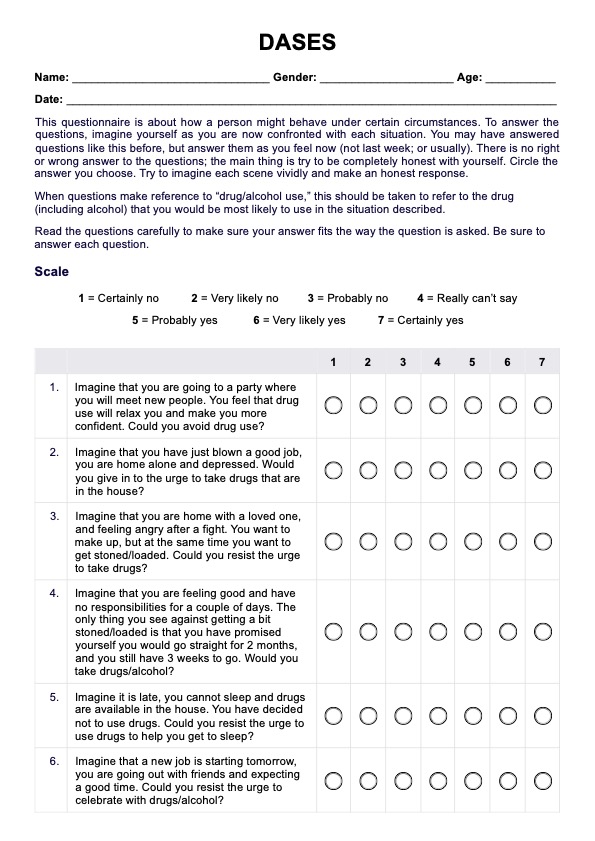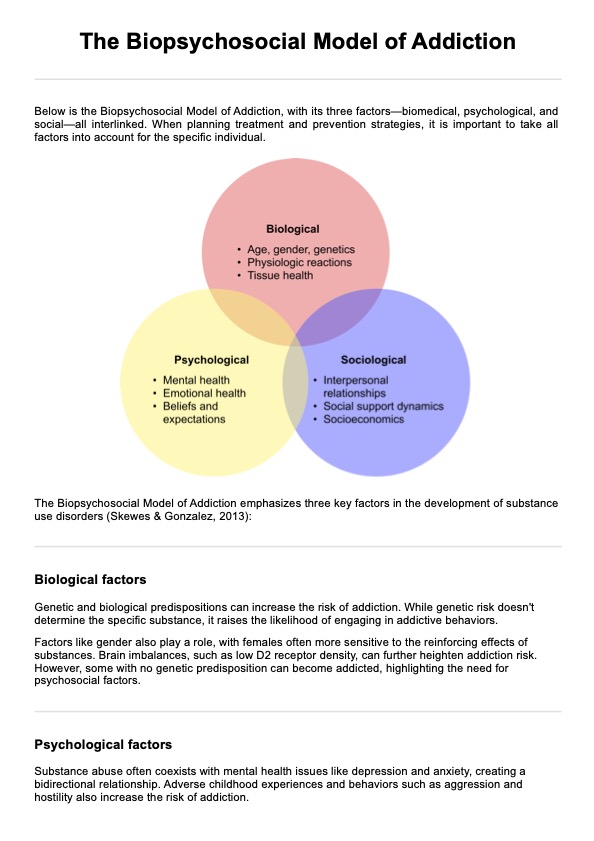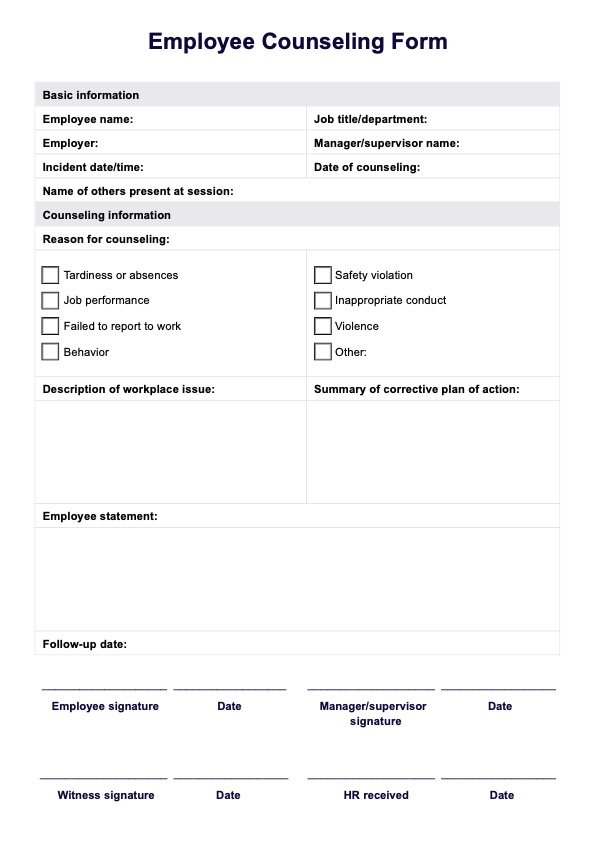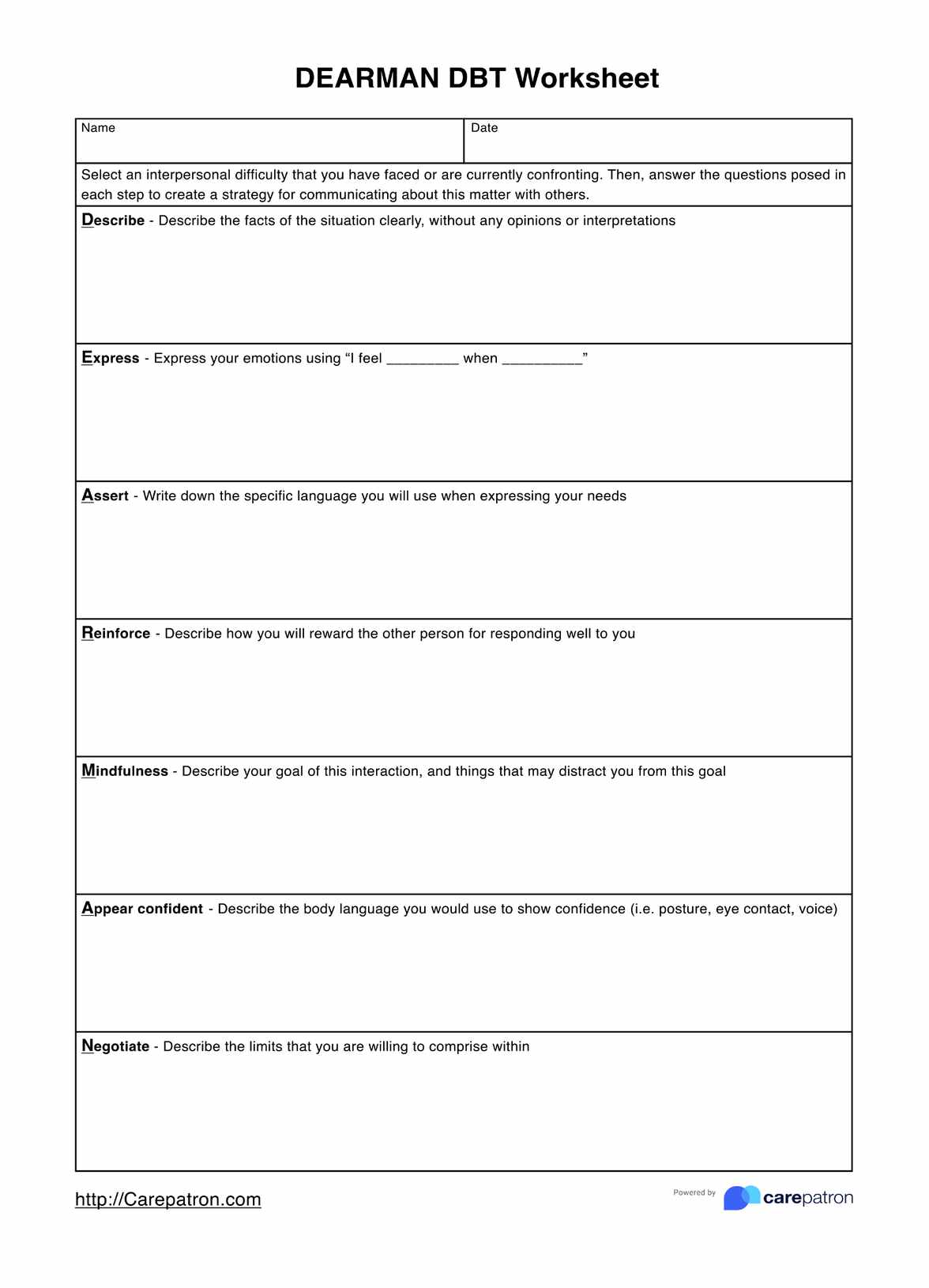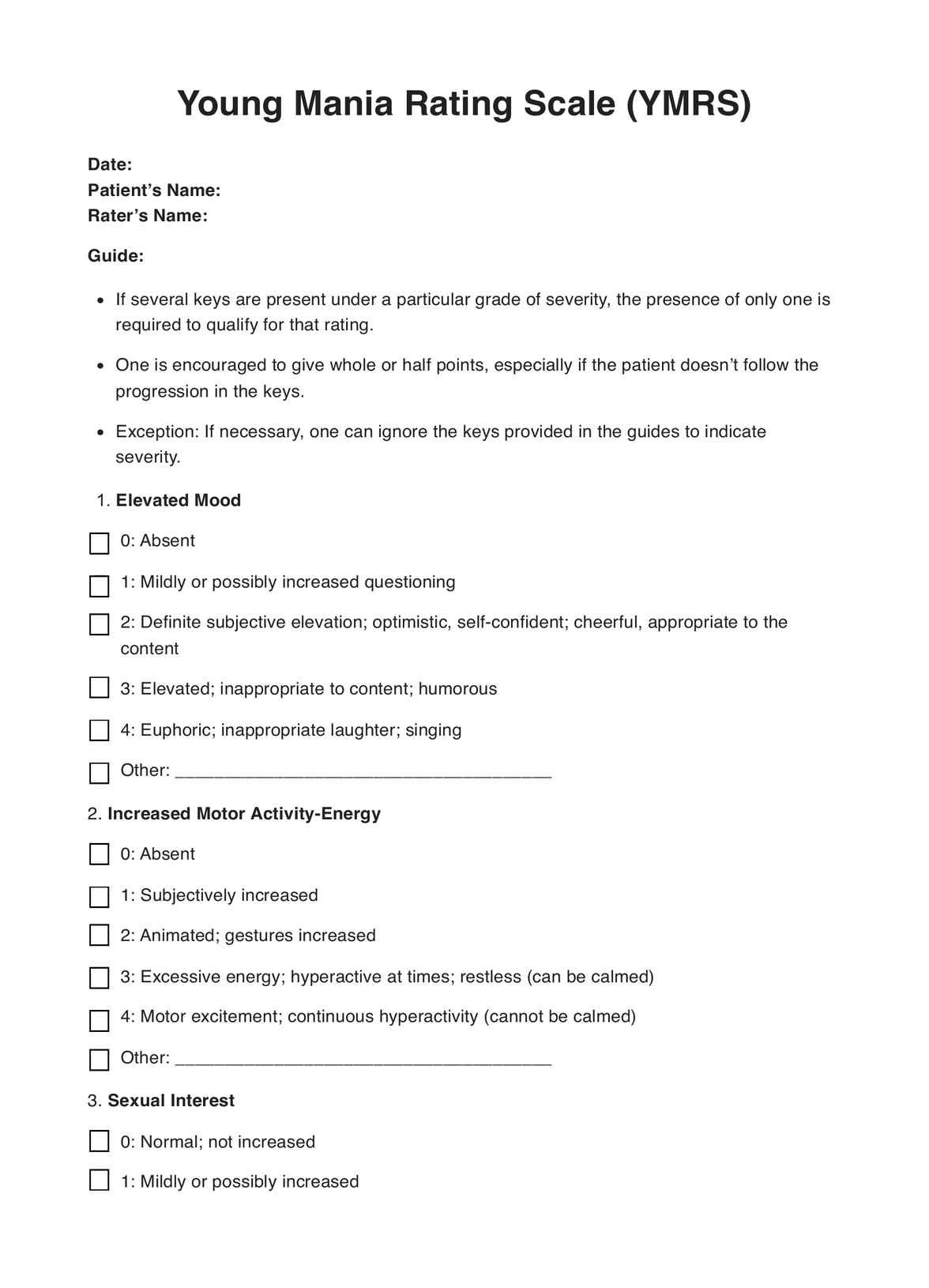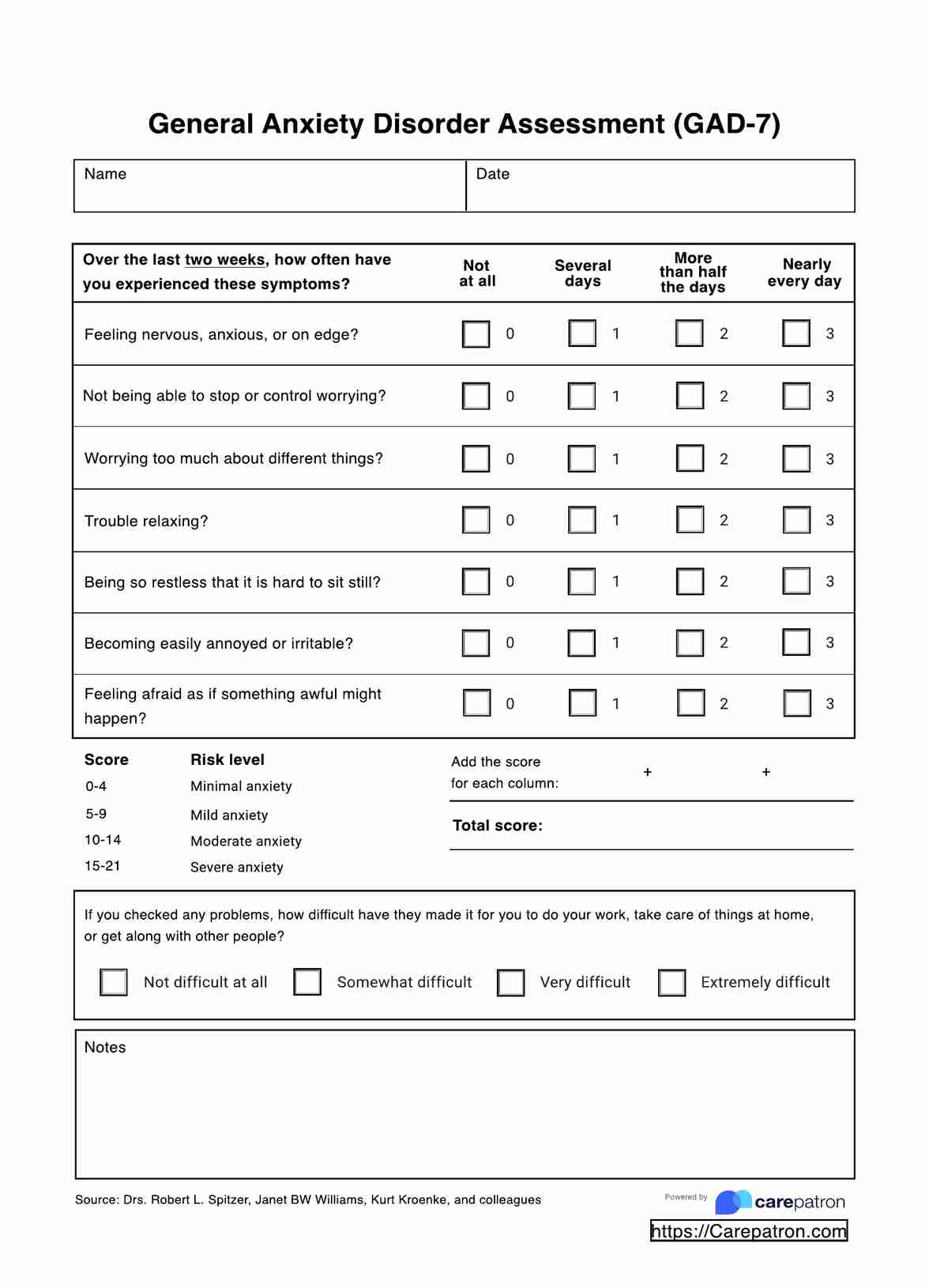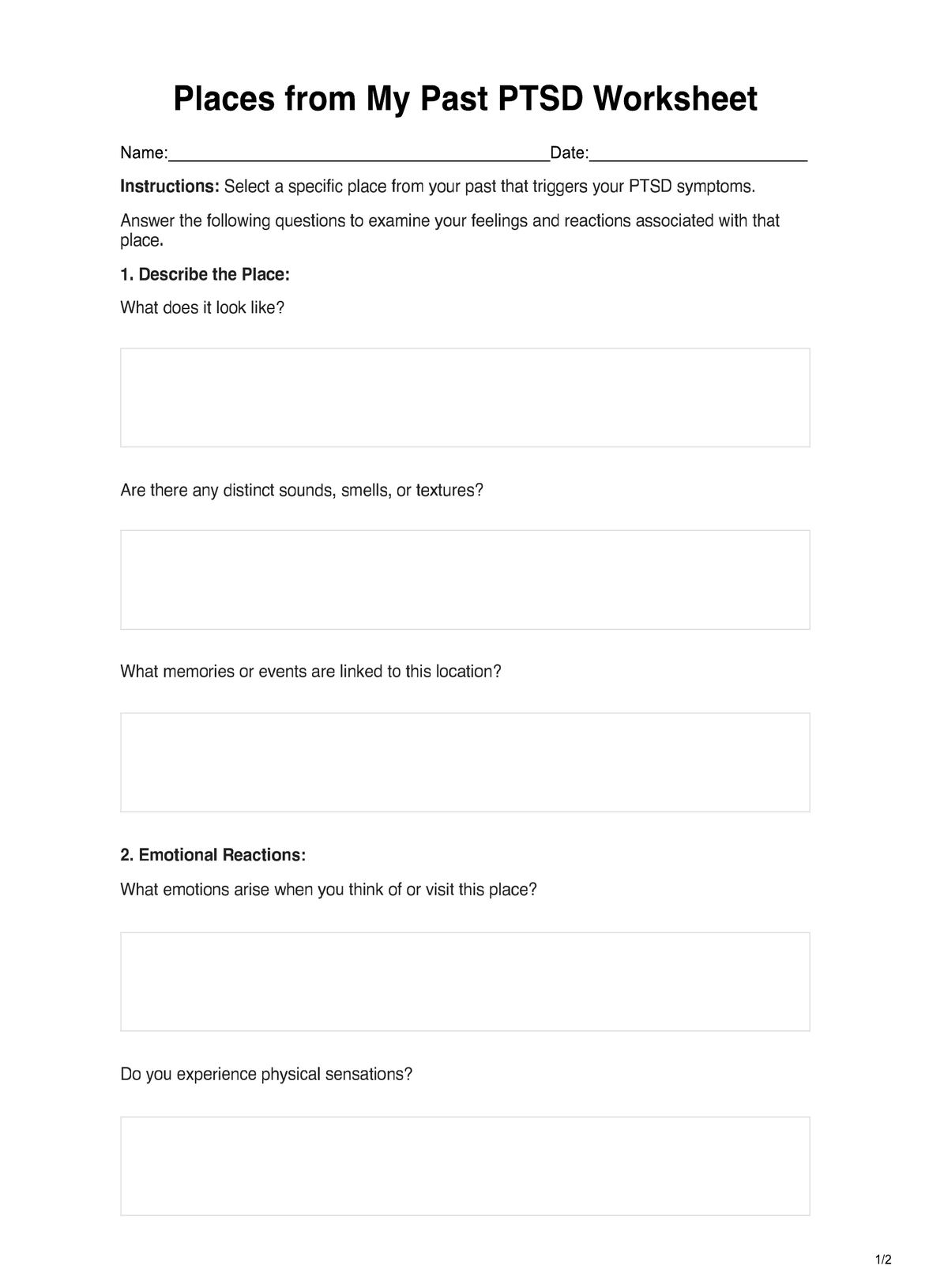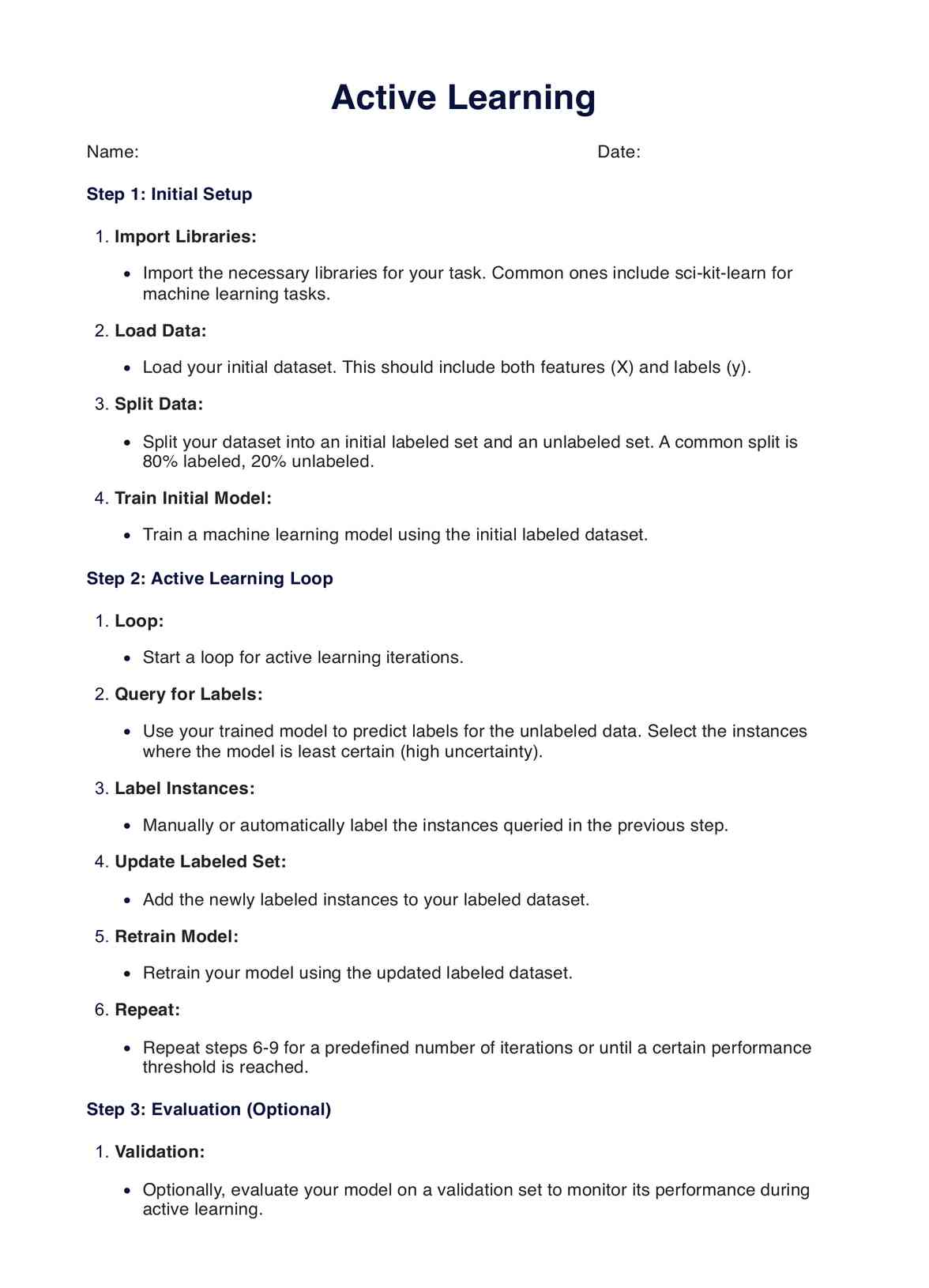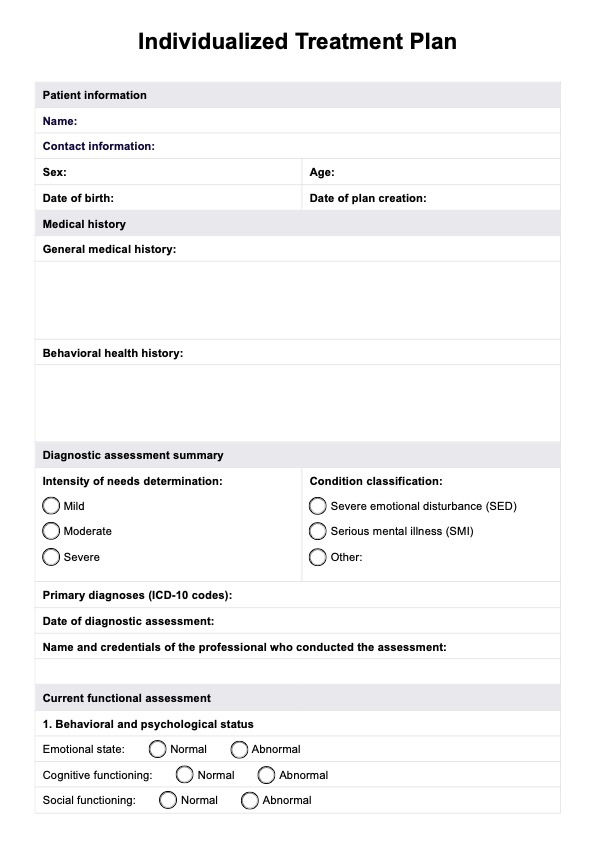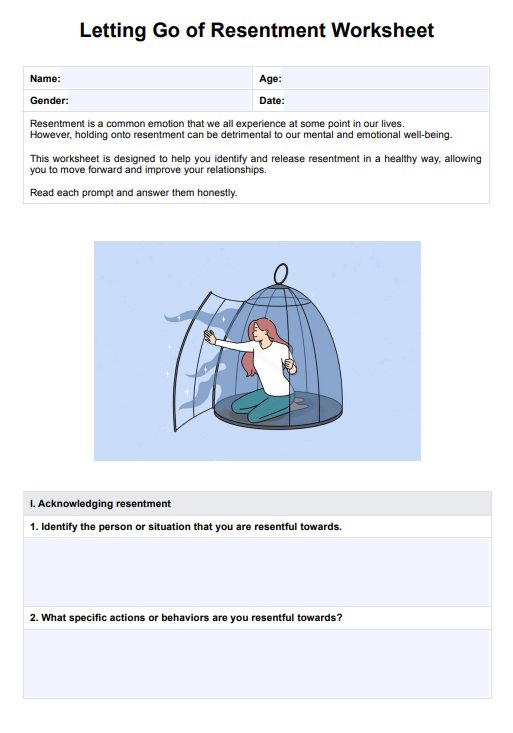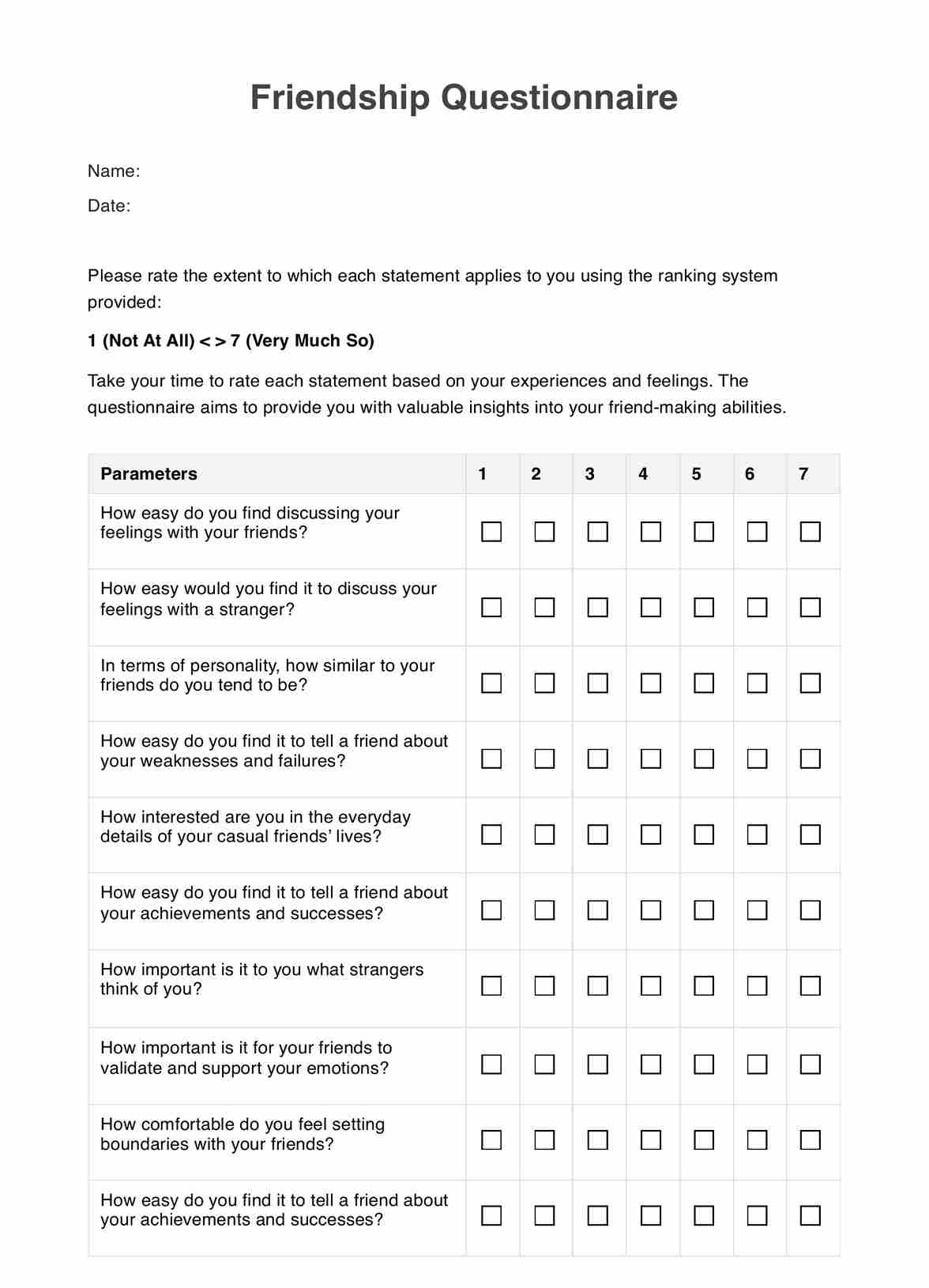Justifying Relapse CBT Worksheets
Prevent relapse with our Justifying Relapse CBT Worksheet. Identify triggers, challenge thought patterns, and build resilience. Start your journey to sobriety today.


What is Cognitive Behavioral Therapy?
(CBT) is a widely recognized and evidence-based therapeutic approach to address various mental health issues, including substance abuse and addiction. It is grounded in the idea that our thoughts, feelings, and behaviors are interconnected, and by changing negative thought patterns and behaviors, individuals can achieve better emotional well-being and overcome destructive habits.
In the context of substance abuse, CBT is employed to help individuals understand and modify the thoughts and behaviors that contribute to their addiction.
CBT helps individuals identify the specific situations, emotions, or thoughts that trigger their substance use. By recognizing these triggers, they can develop strategies to cope more effectively. Many people with substance abuse issues have negative thought patterns, such as low self-esteem or feelings of hopelessness, which can perpetuate addiction. CBT teaches individuals to challenge and replace these negative thoughts with healthier ones.
It also equips individuals with practical skills and strategies to manage cravings and avoid relapse. These may include stress-reduction techniques, problem-solving skills, and assertiveness training. Through self-monitoring, individuals learn to keep track of their substance use, triggers, and progress in recovery. This self-awareness is crucial for making positive changes.
CBT helps individuals set achievable, specific, and realistic goals for their recovery. Breaking the journey into smaller, manageable steps can enhance motivation and provide a sense of accomplishment. CBT emphasizes relapse prevention strategies, teaching individuals to recognize warning signs and develop plans to avoid relapse when faced with high-risk situations.
The therapeutic relationship between the individual and their CBT therapist is crucial. It provides a supportive environment for open communication and trust-building.
Justifying Relapse CBT Worksheets Template
Justifying Relapse CBT Worksheets Example
How to use the Justifying Relapse CBT Worksheet
Step 1: Introduction
Begin by introducing the worksheet to the individual in therapy. Explain its purpose: to explore the thought processes and rationalizations that lead to relapse.
Step 2: Identify the Trigger
In this section, ask the individual to identify the trigger that led to the urge to use substances again. Triggers can be emotional, environmental, or social factors.
Step 3: Describe the Thoughts
Encourage the individual to write down the thoughts and beliefs that emerged when they encountered the trigger. These thoughts often involve justifications for relapsing, such as "I deserve this" or "It won't hurt just this once."
Step 4: Challenge the Thoughts
Guide the individual to evaluate these thoughts critically. Ask them to consider the evidence supporting and contradicting each justification. Are these thoughts based on facts or distortions?
Step 5: Explore Alternatives
Prompt the individual to brainstorm healthier alternatives to relapse. What coping strategies or positive behaviors could they engage in instead? This step encourages problem-solving and skill-building.
Step 6: Develop a Coping Plan
Based on the alternatives identified, assist the individual in creating a concrete coping plan. This plan should include specific actions when faced with the triggering situation.
Step 7: Commitment to Recovery
Encourage the individual to reaffirm their commitment to recovery. They should reflect on their long-term goals and remind themselves of the reasons they want to stay substance-free.
Step 8: Review and Discuss
Review the completed worksheet together. Discuss any insights gained, challenges faced, and strategies for implementing the coping plan in real-life situations.
When would you use this Justifying Relapse CBT Worksheet?
The Justifying Relapse CBT Worksheet is valuable in addiction treatment and recovery. It can be used in various contexts to support individuals striving to maintain sobriety. Here are some of the best and most appropriate times to use this assessment:
- Individual Therapy Sessions: Addiction counselors, psychologists, and therapists can use this worksheet during one-on-one therapy sessions with clients with a history of substance abuse. It is particularly beneficial when clients are experiencing cravings or are at risk of relapse. Therapists can help clients develop healthier coping strategies by addressing justifications for relapse in real-time.
- Group Therapy Settings: Group therapy sessions for individuals in recovery can incorporate the Justifying Relapse CBT Worksheet as a group activity. This allows participants to share their thoughts and experiences related to relapse justifications, learn from each other, and receive peer support and feedback.
- Substance Abuse Treatment Programs: Rehabilitation and addiction treatment programs can integrate this worksheet into their curriculum. It can be used at various stages of treatment, from early intervention to relapse prevention planning. It helps individuals build resilience against relapse triggers and equips them with tools to stay on track.
- Family and Support Systems: In some cases, family members, friends, or support systems may use this worksheet to better understand the thought processes of their loved ones in recovery. It can facilitate constructive conversations and help support networks play a more effective role in the recovery process.
- Aftercare Planning: As individuals transition from formal treatment to aftercare or ongoing support, the worksheet can reinforce relapse prevention strategies and promote self-accountability.
What are the benefits of using this Justifying Relapse CBT Worksheet?
1. Enhanced Self-Awareness
Research has shown that self-awareness is a crucial factor in addiction recovery. The worksheet prompts individuals to identify their triggers and thought patterns, allowing them to gain deeper insights into their behavior and thought processes.
2. Identification of High-Risk Situations
The worksheet helps individuals recognize situations or emotional states that pose a higher risk of relapse. This awareness empowers them to avoid or cope with such triggers proactively.
3. Cognitive Restructuring
The worksheet promotes cognitive restructuring by encouraging users to challenge and reevaluate their justifications for relapse. It assists individuals in replacing distorted or negative thought patterns with healthier alternatives.
4. Relapse Prevention Planning
Users of the worksheet develop concrete relapse prevention plans based on identified triggers and healthier coping strategies. This proactive approach equips them with actionable steps to navigate challenging situations.
5. Improved Coping Skills
Through the worksheet, individuals brainstorm and practice alternative coping strategies. This skill-building process enhances their ability to manage cravings and stressors effectively.
6. Strengthened Recovery Support Systems
The worksheet fosters open communication and understanding among participants when used in group therapy or family counseling. It can strengthen the support systems around individuals in recovery, creating a more conducive environment for their sobriety.
7. Convenient and Accessible
The availability of free Justifying Relapse CBT Worksheets makes this tool accessible to a wide range of individuals, including those without extensive financial resources. This accessibility ensures that more people can benefit from its therapeutic advantages.
Incorporating the Justifying Relapse CBT Worksheet into addiction treatment programs and therapy sessions can significantly improve individuals' recovery. Its evidence-based benefits encompass improved self-awareness, coping skills, and cognitive restructuring, ultimately aiding relapse prevention and long-term sobriety.
Commonly asked questions
The time to complete the Justifying Relapse CBT Worksheet varies from person to person. It can range from 30 minutes to an hour or longer, depending on the individual's willingness to explore their thoughts and the complexity of their triggers and justifications.
The worksheet assists individuals in recognizing and challenging justifications for relapse. It promotes self-awareness, cognitive restructuring, and relapse prevention planning, making it a valuable tool for maintaining sobriety.
The Justifying Relapse CBT Worksheet is designed for individuals in recovery from addiction and can be used by therapists, counselors, group facilitators, and individuals as a self-help tool. It is a versatile resource for anyone committed to preventing relapse and promoting sobriety.


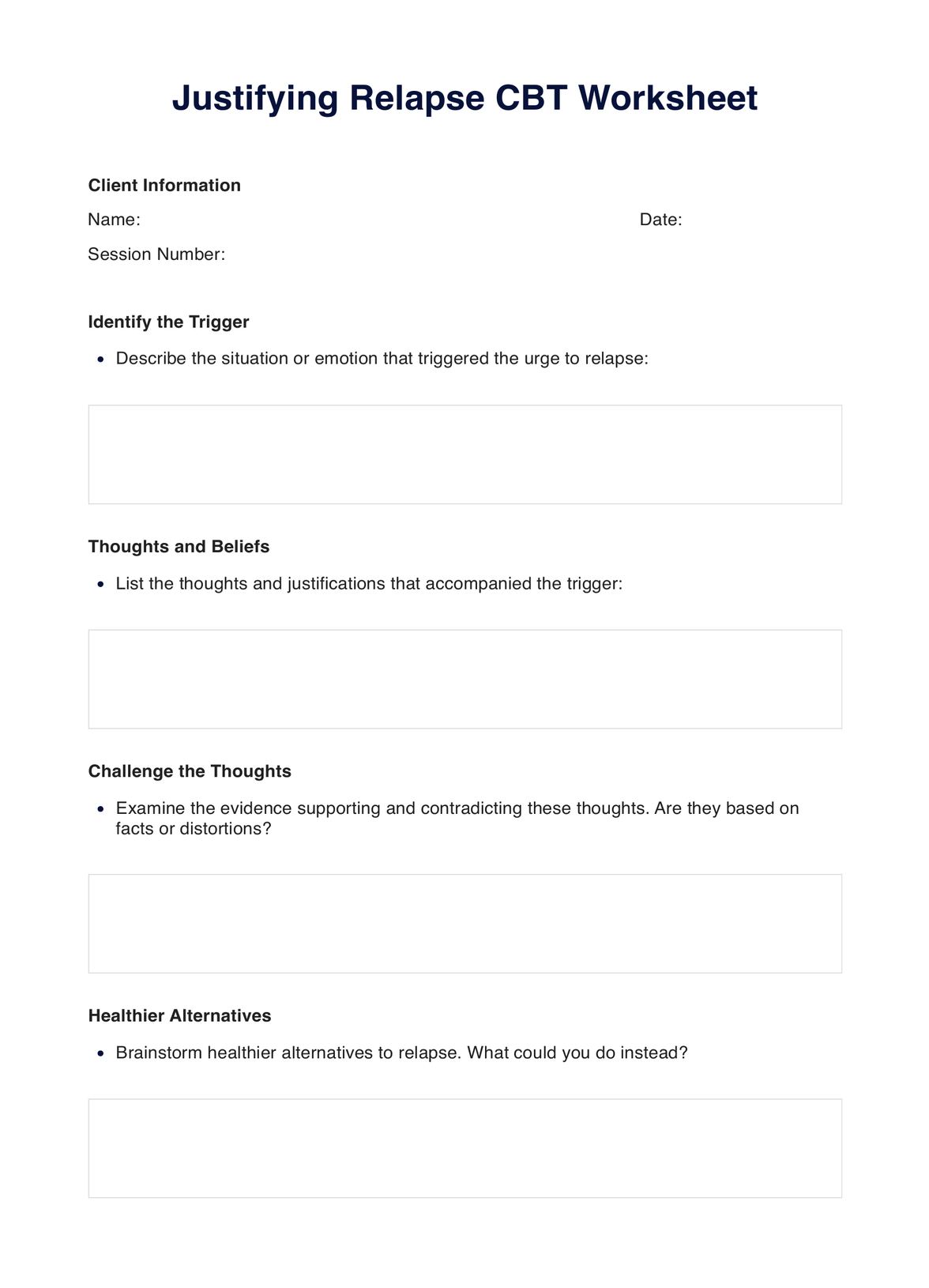
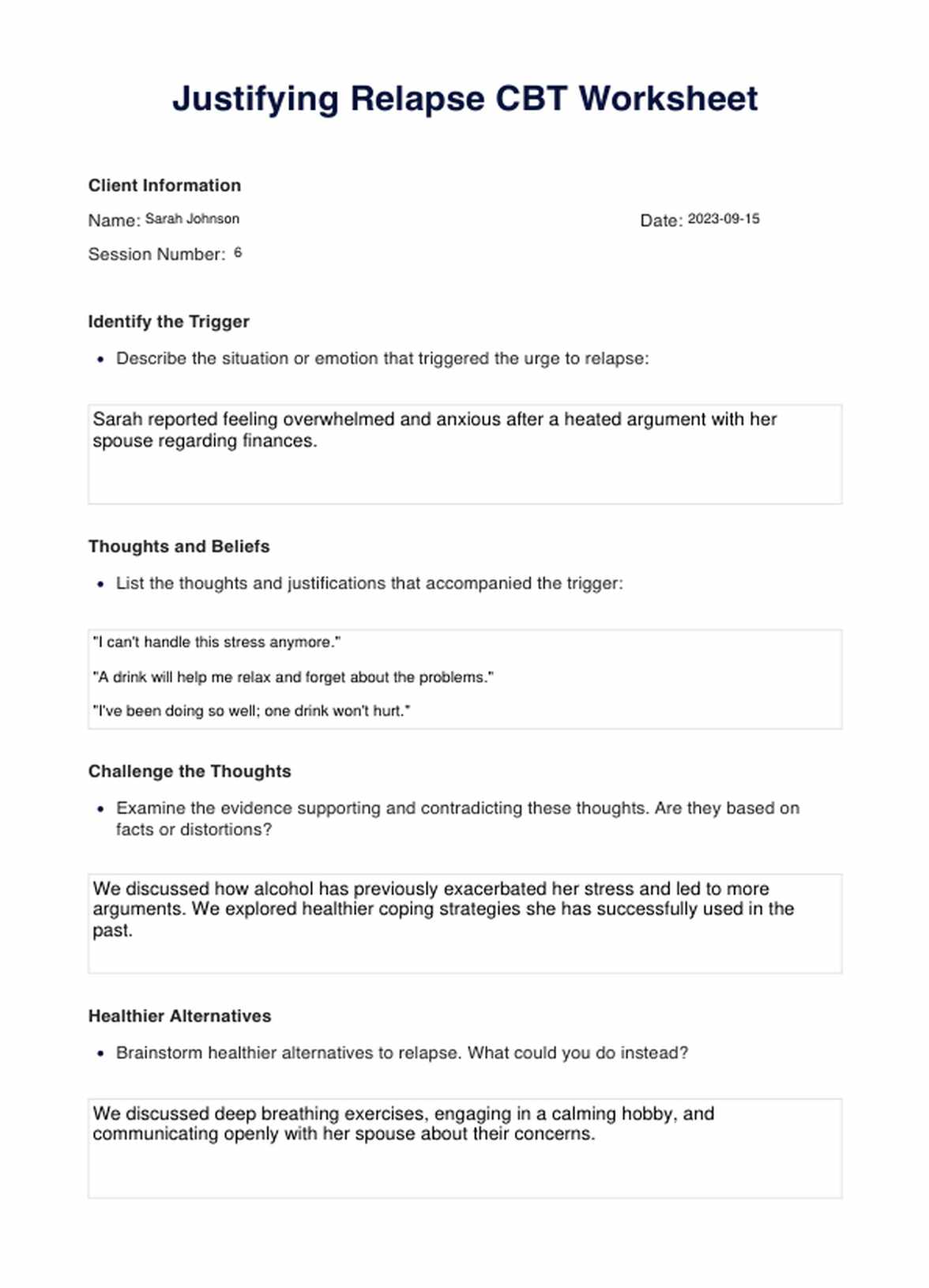















-template.jpg)


